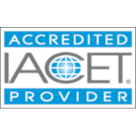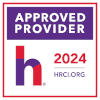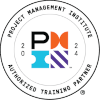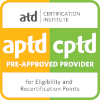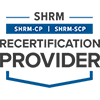Product Details
Topics Covered
- Data breach
- Personally Identifiable Information (PII)
- Cyber attacks
- SSCP
- System architecture
- Computer architecture (von Neumann and Harvard)
- CPU (multiprocessing, RISC vs. CISC)
- Memory
- Denial of Service (DoS)
- Operating systems (OS)
- Trusted computing base (TCB)
- Security perimeter
- Security kernel
- CIA triad
- Security software models
- Assurance evaluation
- Common Criteria
- Accreditation vs. certification
- Open vs. closed systems
- Databases
- Parallel computing
- Cloud computing
- Web applications
- Industrial Control Systems (ICS)
- Cryptography
- Ciphers
- Link encryption vs. end-to-end encryption
- Cleartext
- Ciphertext
- Encryption
- Symmetric vs. asymmetric
- Authentication codes
- Public key infrastructure (PKI)
- Key management
- Physical security risks
Key Features
- Mobile-friendly
- Audio-enabled
- Real-world case studies
- Fully accessible
- Games & Flashcards
- Expert-supported
- Video content
Course Preview
Course Description
Learning Outcomes
- Understand how cryptography works and its role in information security
- Compare and contrast different ciphers and explain how they work
- Create substitution ciphers and encode and decode cleartext and ciphertext
- Discuss how encryption enables secure transmission of sensitive data
- Explain and compare symmetric and asymmetric cryptography
- Describe the role of public key infrastructure and key management
Notes
This course has an "Ask the Expert" feature, which submits your questions directly to an expert in the field you are studying. Questions are answered as quickly as possible and usually within 24 hours.
As an Accredited Provider, MindEdge offers for its learning events that comply with the Continuing Education and Training Standard.
Learners must achieve an average test score of at least 70% to meet the minimum successful completion requirement and qualify to receive credit. Learners will have three attempts at all graded assessments.
Project Management Institute, , the Registered Education Provider logo, Project Management Professional, , Project Management Body of Knowledge, , Agile Certified Practitioner, -, Risk Management Professional, -, the Talent Triangle, and the Talent Triangle logo are marks of the Project Management Institute, Inc.
Information in this course has been taken from A Guide to the Project Management Body of Knowledge, (® Guide) - Sixth Edition, Project Management Institute Inc., 2017.
The following list outlines the you will earn for completing this course, based on the certifications you have.
CAPM®/PMP®/PgMP® |
|---|
| Ways of Working PDUs: 3 |
| Power Skills PDUs: 0 |
| Business Acumen PDUs: 2 |
| TOTAL: 5 |
PfMP® |
|---|
| Ways of Working PDUs: 0 |
| Power Skills PDUs: 0 |
| Business Acumen PDUs: 2 |
| TOTAL: 2 |
PMI-ACP® |
|---|
| Ways of Working PDUs: 3 |
| Power Skills PDUs: 0 |
| Business Acumen PDUs: 2 |
| TOTAL: 5 |
PMI-PBA® |
|---|
| Ways of Working PDUs: 0 |
| Power Skills PDUs: 0 |
| Business Acumen PDUs: 2 |
| TOTAL: 2 |
PMI-RMP® |
|---|
| Ways of Working PDUs: 3 |
| Power Skills PDUs: 0 |
| Business Acumen PDUs: 2 |
| TOTAL: 5 |
PMI-SP® |
|---|
| Ways of Working PDUs: 0 |
| Power Skills PDUs: 0 |
| Business Acumen PDUs: 2 |
| TOTAL: 2 |
